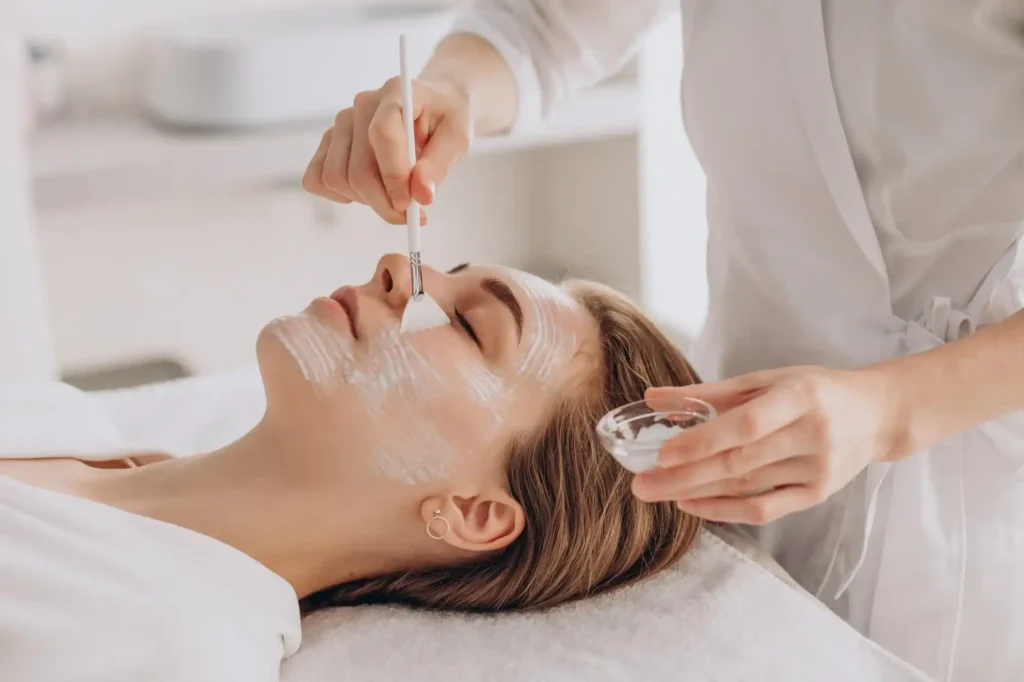Maintaining healthy, radiant skin requires a consistent natural skincare routine. By choosing organic skincare methods, you can avoid harmful chemicals and nourish your skin with natural ingredients. In this guide, we’ll explore an effective chemical-free beauty regimen that promotes glowing skin while being kind to the environment. If you’re looking for eco-friendly skincare tips, you’re in the right place!
1. Understanding Natural Skincare
A natural skincare routine focuses on plant-based, non-toxic ingredients. Unlike synthetic skincare products, natural skincare relies on organic oils, botanical extracts, and minerals to enhance skin health.
Benefits of Natural Skincare:
- Free from harsh chemicals and synthetic fragrances.
- Rich in vitamins and antioxidants.
- Environmentally sustainable and cruelty-free.
2. Essential Steps in a Natural Skincare Routine
To achieve glowing skin, follow these essential steps in your natural skincare routine:
Cleansing: Remove Impurities Naturally
A gentle, chemical-free beauty regimen starts with a natural cleanser like honey or aloe vera to remove dirt and excess oil without stripping your skin’s moisture.
Exfoliation: Buff Away Dead Skin Cells
Using natural exfoliants such as oatmeal or coffee grounds helps remove dead skin cells and improve circulation.
Toning: Balance and Refresh
Rosewater or witch hazel serves as a perfect natural toner to tighten pores and refresh the skin.
Moisturizing: Lock in Hydration
Natural oils such as jojoba, argon, or coconut oil deeply hydrate the skin and maintain a balanced complexion.
Sun Protection: Shield Against UV Damage
Apply a zinc oxide-based sunscreen to protect your skin from harmful UV rays.
3. Best Natural Ingredients for Skincare
Using high-quality ingredients is key to an effective natural skincare routine. Here are some must-have natural skincare ingredients:
- Aloe Vera: Soothes irritation and hydrates the skin.
- Turmeric: Reduces inflammation and brightens skin.
- Shea Butter: Provides deep moisture and protects against dryness.
- Tea Tree Oil: Fights acne and prevents breakouts.
- Rosehip Oil: Rich in vitamins A and C for anti-aging benefits.
4. Organic Skincare Methods for Different Skin Types
Every skin type requires a unique approach to skincare. Here’s how you can tailor your natural skincare routine based on your skin type:
Oily Skin:
- Use lightweight oils like jojoba to control excess oil.
- Exfoliate twice a week with clay masks.
Dry Skin:
- Opt for rich moisturizers such as shea butter or avocado oil.
- Hydrate with aloe vera gel.
Sensitive Skin:
- Choose fragrance-free, organic skincare products.
- Apply chamomile-infused creams to reduce irritation.
5. How to Build a Chemical-Free Beauty Regimen
A chemical-free beauty regimen should focus on purity and simplicity. Avoid products containing parabens, sulfates, artificial fragrances, and synthetic preservatives.
Tips for a Safer Skincare Routine:
- Read ingredient labels carefully.
- Choose certified organic and cruelty-free products.
- Avoid excessive use of exfoliants to prevent skin damage.
6. Eco-Friendly Skincare Tips for a Sustainable Routine
Adopting eco-friendly skincare tips ensures that your beauty habits support a healthier planet.
- opt for minimal or recyclable packaging.
- Use biodegradable cleansing pads instead of disposable wipes.
- Support brands committed to sustainability and ethical sourcing.
7. Common Mistakes in Natural Skincare and How to Avoid Them
Even with the best intentions, some habits can negatively affect your natural skincare routine:
- Over-exfoliating: Stick to exfoliating 2-3 times a week.
- Using too many products: Keep your routine simple and effective.
- Skipping sunscreen: Always wear sun protection, even on cloudy days.
8. Frequently Asked Questions About Natural Skincare Routine
Q1: How long does it take to see results from a natural skincare routine?
A: You may start noticing improvements in 4-6 weeks, depending on your skin type and consistency.
Q2: Can I use natural skincare products if I have sensitive skin?
A: Yes, but always patch-test new products to avoid irritation.
Q3: Are homemade skincare remedies effective?
A: Yes! DIY masks and serums using organic ingredients can be highly effective.
Q4: What is the best natural moisturizer?
A: Shea butter, rosehip oil, and aloe vera are great options for hydration.
Q5: How do I transition to a natural skincare routine?
A: Start by replacing one product at a time with a natural alternative.
Q6: Is sunscreen necessary in a natural skincare routine?
A: Absolutely! Use a mineral-based sunscreen to protect your skin from UV rays.
Q7: Can I use essential oils directly on my skin?
A: Essential oils should always be diluted with a carrier oil before applying to the skin.
Q8: How do I know if a product is truly natural?
A: Look for organic certifications and avoid products with artificial preservatives.
Conclusion: Start Your Natural Skincare Journey Today
Switching to a natural skincare routine is one of the best decisions for your skin and the environment. By using organic skincare methods and following a chemical-free beauty regimen, you can achieve a healthier, more radiant complexion. Implement these eco-friendly skincare tips, and you’ll soon see the transformative benefits of natural beauty.

